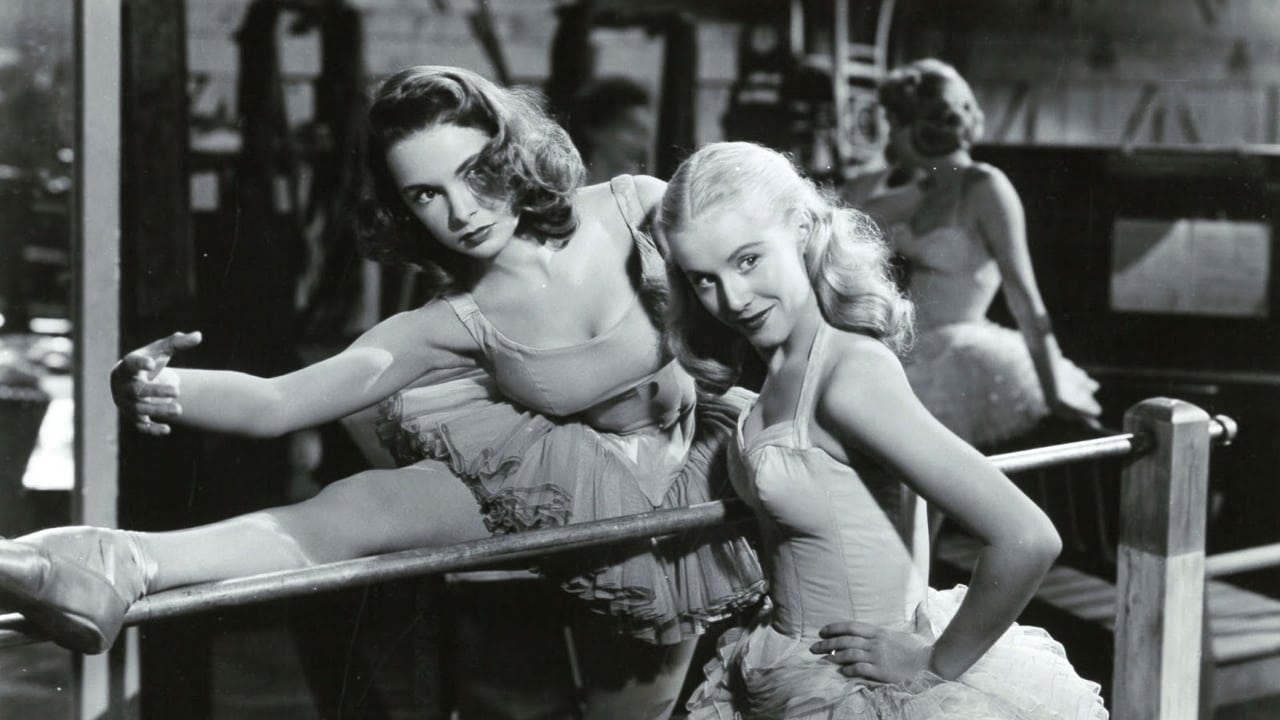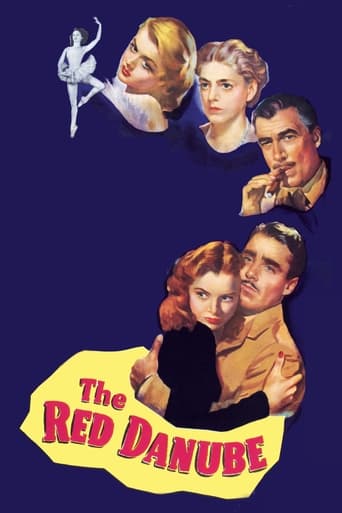

What makes it different from others?
... View MorePerfectly adorable
... View MoreOne of the best films i have seen
... View MoreI am only giving this movie a 1 for the great cast, though I can't imagine what any of them were thinking. This movie was horrible
... View MorePossibly people who were not here at the beginning of the Cold War have difficulty appreciating this film. The film deserves at least an 8 for its skillful grappling with the issues which were to consume us for over forty years. The direction and script are tightly spun and intelligent; two characteristics which many later Cold War film lack. The Russian general is perhaps more caricatured than real, but this flaw is more than compensated for with sterling performances by Ethyl Barrymore and Walter Pigeon. It's also a great Christmas movie with the beautiful subplot of the little girl working the black market to survive. I wish the script were a little less rough on Angela Lansberry's character, but she somehow was able to pull it off. A good show. Recommended to be seen with "The Third Man"
... View MoreThis is Leonard Maltin's assessment of this film: "Meandering drama of ballerina Leigh pursued by Russian agents, aided by amorous Lawford; heavy-handed at times." This is like saying "Titanic" (1997) is "a meandering drama of artist's model Winslet caught between fiancé and a shipboard romance; heavy-handed at times". The man is an idiot. This film is a stylish and courageous exposition of the necessary process of humanization that the Allied armies had to go through in dealing with the refugee problem in Eastern Europe following WWII. The acting is uniformly excellent, even Peter Lawford managing a moment or two to shine among the superlative performances of Walter Pidgeon, Angela Lansbury, Ethel Barrymore, Louis Calhern, Janet Leigh and a handful of others. The music is by Miklos Rozsa who must have found the subject inspirational. The lighting, photography and the director's ability to express human tragedy through human faces are transcendental. This film even has its moments of humour. Not your average war film. Highly recommended.
... View MoreA very good piece of propaganda may best describe this 1949 film dealing with repatriation of people after World War 11.Walter Pidgeon stars as the non-believer assigned to Rome and Vienna after the war. There he encounters the Mother Superior, played so well by Ethel Barrymore.The story concerns itself with Maria Buhlen- a young and wide-eyed Janet Leigh, who has been living in Austria, but since she is a Russian citizen, she must return to the Soviet Union. Even as a ballerina, her fate will be sealed there. Maria manages to escape before being turned in by the British who are looking to appease the Soviets. Of course, legislation is pending in the U.N. that would help repatriates such as Maria.Love blossoms along the way between Maria and an army man, Peter Lawford. Lawford, other than making love to Ms. Buhlen, has little to do here. Love seems to conquer all until tragedy intervenes.The film succeeds in showing the deprivation and fear of such people caught up by world politics. That little Austrian girl will just tug at your heart.The heavy here is Louis Calhern. He turns in a fine performance as a Russian soldier who goes by the book. He goes after Maria Buhlen with a vengeance.Mother Superior? Maria? Hiding Maria? I thought I was back in "The Sound of Music" momentarily but this film is worthwhile and should be seen.
... View MoreJust what is the propaganda in the movie? The following comments by "choosy" (from Seattle WA US) are, for the most part, accurate: "The other comments miss the point completely--the focus in the novel was not Cold War propaganda but the facts of the insane policies of the US and British in their respective zones of occupation in Germany and Austria to forcibly remove or return Eastern Europeans, not just Soviet citizens, even including ethnic Germans, most of whom had endured untold horrors trying to escape to the west, safety, and 'freedom' at the end of the war. That was the bemused Walter Pigeon's problem, not 'war guilt' but having to 'obey orders.' " (...AFTER the war.) "Most expellees were anti-Soviet, which is why they had escaped to the west to begin with, and thus went back to a certain death. It wasn't a small part of history--it was one of the biggest Allied mistakes and betrayals, and there were many, of the Occupation." Here "choosey" has a reasonably solid handle on events, regardless of the novel or the movie. But the following of "choosy's" comments are off-base, primarily because he does not consider the whole picture. "The fact that this forceful expulsion was done because the Allies a. did not want to feed and care for refugees, and b. did want to curry favor with the Soviets at that pre-Berlin Blockade period makes the history even more poignant." The US Army (including the British Army) at that time was actually TWO armies in transition, as the combat forces who had fought their way across Europe to war's end gradually turned their functions and responsibilities over to a fresh Occupation Army - fully prepared to address whatever was needed in the immediate post-war period in their respective zones of responsibility. Not wanting to feed or care for the refugees or concern about currying favor with the Soviets simply did not enter the equation, nor was there any need to; this is pure revisionism. There were diplomatic protocols signed by the highest levels of all involved governments before the war ended; it was the duty of the soldiers of those respective governments to comply with those protocols, most of which at the time they were signed had solid rationale.The policies mentioned in "chosey's" comments above were, in fact, in full agreement with procedures to which the Allies (US, GB, France and Russia) had worked out prior to the end of the war. Similar procedures were required of the Russians in repatriating "displaced citizens" to their proper homes in the west. Russia was seen during the war as a co-equal partner in the overall war effort on the European continent, and US combat forces (Patton's army), in fact, actually withdrew from forward positions they had reached in Austria and Czechoslovakia so that those regions could be turned over to Russian forces as per previous agreement concerning post-war occupation. (The US and UK could not have won the war in Europe without Russian participation, but all nations always exact a price for their cooperation. Russia under Stalin was no different.) It rapidly became apparent, however, that Russia and its military, if not its political leadership, had very deep-seated scores to settle with those population groups who were seen as having fought against Russian forces, and thus had caused such horrendous spilling of Russian blood. (Probably the most confusing group was the Ukrainians - who had repeatedly been forced to turn and fight their previous "partners", back and forth, and even each other, during the ever shifting circumstances of the war in the Ukraine.) Russian rule in the zones over which they had control after the war very rapidly became quite ruthless, and it quickly became apparent to everyone that the KGB was, in fact, calling all the shots. There is also considerable evidence that the KGB was executing policies dictated by Stalin himself. Still, US and British military personnel stationed adjacent to the Russian zones or as liaison personnel were required to assist with the "resettlement" or "repatriation" procedures - which caused considerable internal turmoil among those men that lasts to this day.On the other hand, there were also (fewer) numbers of people we were trying to repatriate from the Russian zones in the East to their proper homes in the West, including those warehoused in concentration camps and prisoner of war stockades. In order to accomplish that, we had to demonstrate some degree of reciprocity.These things were, and remain, simple facts of history. War, and its aftermath, is rarely as neat and tidy as after-the-fact armchair generals would prefer. War is always, at best, a series of compromises and constantly changing circumstances. The procedures depicted in the movie had nothing at all to do with "feeding the red scare, the rise of McCarthyism, or as propaganda" to use somewhere else in the world. These days we ALL seem to use events for our own particular agendas, simply by putting some twisted ignorant spin on them, or by creating asinine cause-and-effect scenarios to best suit our own purposes. No one stops to consider that any two-bit twit can throw cheap stones from the very safe sidelines, and what is safer than the distance of a half century? But, in the end, facts are facts. The major events shown in the movie happened. Do with them what you will, but I prefer to keep them as they actually were - simple reality, facts of life, consequences of war.As a life-long intelligence/liaison/diplomatic ground force professional, veteran of several wars, student of military history, who also served in Occupied West Berlin for five years watching good people die trying to get over The Wall to the West, I am .... Old Soldier
... View More